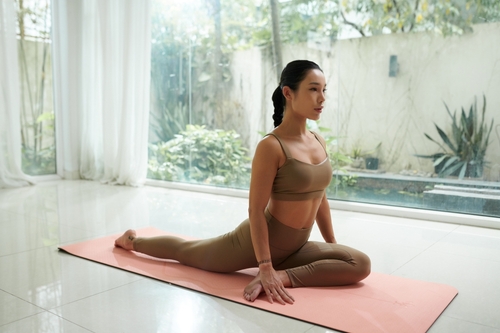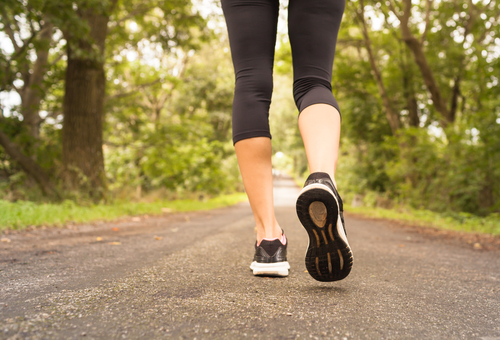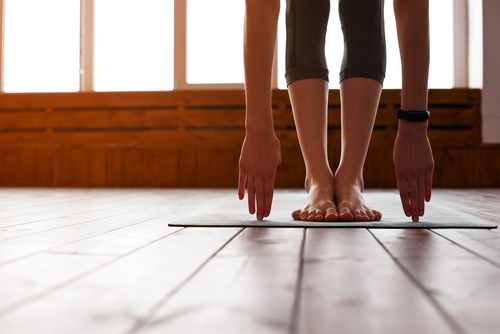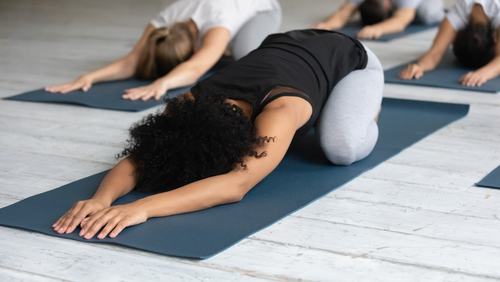Big changes feel impressive, but it’s the tiny, repeatable actions that quietly reshape your body, your mood, and even your lifespan. These micro-habits don’t require fancy gear or dramatic time commitments. They’re simple, daily rituals that build resilience from the inside out. When practiced consistently, they’ll help you sleep deeper, handle stress better, and bounce back faster from illness. If your goal is to be harder to kill—figuratively and literally—this list is your blueprint.
1. Drink a Glass of Water the Moment You Wake Up

Your body wakes up in a mild state of dehydration, and that lack of fluid can impact everything from your energy levels to your cognitive function. Before reaching for coffee, juice, or your phone, make it a habit to drink a full glass of water. Doing this flushes out toxins, lubricates your joints, and jumpstarts your digestive system. You’ll also notice better skin, more regular bathroom habits, and increased focus. For an added benefit, add a few drops of lemon juice or a pinch of sea salt to balance your electrolytes and support adrenal health. It may sound too easy, but after a few weeks, this one habit alone can leave you feeling sharper and more energized than ever.
2. Stretch for Two Minutes a Day

You don’t need a full yoga session to reset your body. Just a few focused minutes of stretching can significantly ease muscle tension, improve blood flow, and enhance your range of motion. Start with your neck and shoulders—two areas where most of us carry stress. Then move down to your spine, hips, and hamstrings. Gentle, consistent stretching helps counteract the physical effects of long periods of sitting, staring at screens, or driving. More importantly, it activates your parasympathetic nervous system, the “rest and digest” mode that helps calm your mind. Doing this first thing in the morning or just before bed helps regulate your mood and prevents injury in the long run.
3. Add One Fermented Food to Your Diet

Gut health isn’t just about digestion—it’s tied to everything from immunity and mood to skin clarity and inflammation levels. The human gut contains trillions of bacteria, and keeping that ecosystem balanced is key to staying well. Fermented foods like sauerkraut, kimchi, miso, yogurt, and kefir are full of live probiotic cultures that help maintain that balance. Adding just one serving a day can improve how you absorb nutrients, reduce bloating, and even protect your mental health. Science now links gut flora to conditions like depression and anxiety, so this tiny habit could have surprising ripple effects across your whole system. It doesn’t have to be a big meal—just a spoonful here or there is enough to feed the good bugs and crowd out the bad ones.
Read More: 11 Daily Habits for a Happier Life and the Ones That Are Holding You Back
4. Walk for 10 Minutes After a Meal

This habit is wildly underrated. Walking after meals helps your body manage blood sugar spikes by stimulating glucose uptake in your muscles. It also aids digestion by speeding up the movement of food through your system and reducing post-meal sluggishness. People who walk after eating regularly report fewer energy crashes, better sleep, and even improved weight management. It’s particularly effective after dinner when your body is preparing to wind down. Instead of collapsing onto the couch, go for a gentle walk around the block, pace while tidying the house, or hop on a treadmill for a few minutes. These post-meal walks aren’t just good for your physical health—they also support your mental clarity and emotional stability.
5. Breathe Through Your Nose, Not Your Mouth

It’s something you do all day without thinking, but how you breathe affects everything from your stress response to your immune system. Mouth breathing can lead to dry airways, increased anxiety, disrupted sleep, and even changes to facial structure over time. Nasal breathing, in contrast, filters and warms the air, promotes optimal oxygen uptake, and triggers the vagus nerve—calming your entire nervous system. It also increases nitric oxide production, which improves circulation and immune function. Start by noticing your breath during quiet moments—while working, driving, or falling asleep. If you find yourself mouth breathing, gently close your lips and breathe through your nose. This simple switch can help you sleep more deeply, feel more grounded, and stay healthier all year long.
6. End Your Showers with Cold Water

You don’t need to take a full cold plunge to reap the benefits of cold exposure. Just turning the water to cold for the last 30 seconds of your shower can significantly increase alertness, boost your immune system, and support lymphatic drainage. Cold exposure activates brown fat, a type of fat that burns energy to produce heat, potentially supporting weight management. It also reduces inflammation and helps your body build tolerance to stress. While it might be uncomfortable at first, over time, you’ll find it energizing. It’s a tiny discomfort that makes you mentally tougher and physically more resilient.
7. Stand and Move Every 30 Minutes

Extended periods of sitting are linked to a host of health problems including obesity, cardiovascular disease, and even early death. Breaking up your sitting time with brief movement—even standing for one or two minutes—can significantly improve blood flow, stabilize energy, and boost productivity. Use a standing desk if possible, or set a timer to remind you to get up. Walk around, do some light stretching, or perform a few bodyweight squats. These mini-movement sessions might not feel like much in the moment, but they accumulate over time, reducing pain, improving posture, and keeping your metabolism more active throughout the day.
8. Get 10 Minutes of Morning Sunlight

Exposure to natural light early in the day is essential for regulating your circadian rhythm. This helps you feel alert in the morning and sleep better at night. Morning light, especially without sunglasses or windows blocking the rays, tells your body to halt melatonin production and boost serotonin levels instead. That surge of serotonin helps elevate mood and sharpen focus. Over time, daily sun exposure also contributes to higher vitamin D levels, better immune responses, and reduced risk of depression. Step outside within an hour of waking—even if it’s cloudy—and let your eyes absorb the natural light. It’s free, it’s fast, and it sets your entire day in motion.
9. Practice Saying “No” Without Explaining

One of the most powerful ways to protect your mental health is learning to say “no” with confidence. When you say yes to everything, you drain your time, energy, and emotional reserves. Practicing the art of saying “no” without tacking on excuses or justifications allows you to honor your own limits. Try phrases like “That won’t work for me,” or “I’m not available,” and leave it at that. The less you explain, the more grounded and clear you become. This habit builds self-respect and reduces resentment. It also teaches others to respect your time, which pays off in every relationship.
10. Disconnect from Screens Before Bed

Blue light from screens delays melatonin production, making it harder to fall asleep and reducing sleep quality. Instead of scrolling through your phone or binging another episode, start winding down with non-digital rituals—reading, journaling, gentle stretches, or even a hot shower. These habits help your brain transition into sleep mode and support deeper, more restorative rest. Good sleep isn’t just about feeling rested—it repairs your body, consolidates memories, and regulates everything from appetite to immune function. Ending the day screen-free is one of the most effective ways to strengthen your physical and mental resilience.
Win the Day with Micro-Habits

You don’t need to be extreme to see results. These habits are designed to slip into your day quietly and work in the background, adding up to serious benefits over time. You’ll feel less anxious, sleep more deeply, get sick less often, and recover more quickly from stress. Pick one to start, stick with it until it feels automatic, then add another. With consistency, these tiny habits will make you tougher, calmer, and harder to break—one small choice at a time.
Read More: These 15 Habits Could Be Making You Look Older Than You Are

